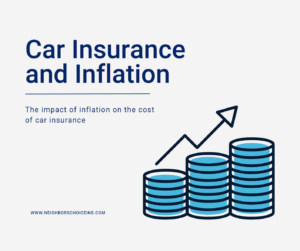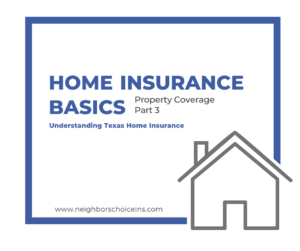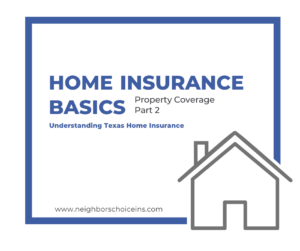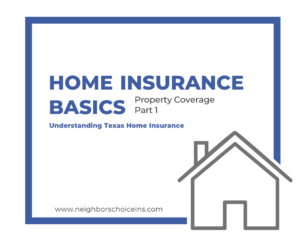We have covered a lot of ground in the last two blogs – starting with the basics of auto liability coverage and limits, then moving through covered drivers and vehicles and common exclusions. In this blog, we will discuss Supplementary Payments, more information about Ride-Sharing and Business Use and some extra information that didn’t fit neatly into the previous two blogs – like Duties After a Loss as well as some important information about Fraud. Buckle up because here we go!
Ride-Sharing
Ride-Sharing means using your personal vehicle for the transportation of people or delivery of goods by utilizing the online network of a Transportation Network Company (TNC). Some examples of TNCs include Uber, Lyft, Zipcar, Instacart, DoorDash, and UberEats.
While some TNCs provide basic coverage for drivers while they are performing the duties of their job, there are certainly gaps in coverage that could leave a driver unintentionally exposed. Ride-sharing activity requires liability limits that may be higher than the state minimum limits.
The vast majority of the time, the personal auto policy is going to exclude coverage for any activity related to working for a TNC/Ride-Sharing. However, several companies offer an endorsement to include coverage for this kind of activity.
If you are performing any activities related to Ride-sharing/TNCs, it is important to discuss and disclose these activities to your insurance agent/company. They can help you get the appropriate coverage so that you don’t have to worry while you work!
Business Use
Many insurance policies exclude coverage for the use of your personal vehicle for business use. However, some insurance policies will allow certain forms of business use as long as it is disclosed at the time of application. Some examples of business use that may be permitted include: MLM/Direct Sales representatives, real estate agents, insurance agents, lawyers, accountants or other professionals visiting multiple locations. Once again, if you are performing any business activities with your personal vehicle, it is important to disclose and discuss this usage with your insurance agent.
Supplementary Payments
Supplementary Payments are payments to an insured that are in addition to the other basic liability coverages provided by the policy. Some examples of Supplementary Payments include the cost of bail bonds resulting from a covered accident, daily payments toward lost income if an insured must miss work to attend hearings or trials at the insurance company’s request and other reasonable expenses incurred at the insurance company’s request. Each company has their own version of Supplementary payments and the attached limits. Once again, you must read YOUR policy to find out what is and is not covered by your specific policy.
Punitive or Exemplary Damages
Punitive or Exemplary Damages are usually not covered under auto liability insurance. These damages are extra amounts to be paid by the defendant to deter the defendant from repeating their actions and to deter others from doing anything similar. These amounts are intended to punish the defendant and are often used to set a public example. Very few auto liability policies can be amended to include punitive and exemplary damages, however, the vast majority of auto liability policies exclude them.
Duties After an Accident or Loss
The insurance company isn’t just going to start writing checks and handing out money at the first notice of a claim. There is an investigation that must take place. There are duties the insured has after an accident or loss and failure to perform the outlined duties could put the insurance coverage in jeopardy.
In fact, in the insurance policy, there is going to be a WHOLE section on your duties after a loss and how the insurance company has no duty to provide coverage under the policy unless there has been full compliance with the duties outlined.
In general, you must notify the insurance company of an accident or loss promptly – including the basic details of the loss: how, when and where, who was involved and if there were any injuries or witnesses.
Any person seeking coverage must cooperate with the insurance company’s investigation, settlement and defense. This may include submitting various requested documentation and any other legal documents received in connection to the accident or loss. The insurance company may request medical exams and reports or other pertinent records that are related to the loss. Additionally you may be asked to give a statement under oath.
In short, you can’t just ghost the insurance company and expect them to take care of everything for you.
When you get into the other policy coverages, there are additional duties for the insured to perform. We’ll save those for another day.
Fraud
The insurance company relies on the information you provide in order to issue your policy. It’s important to note that the insurance company does not have a duty to provide coverage for any person under the insurance policy that has made fraudulent statements or engaged in fraudulent conduct in connection with any accident of loss for which coverage is sought under the insurance policy.
Fraudulent statements include concealment or misrepresentation of any material fact or circumstance material to the risk. In other words, if the insurance company would have rejected your application or charged more for your insurance had they know a piece of information that you concealed or lied about, they have the right to void your policy or deny coverage for an accident or loss at the time they discover this piece of information. If they’ve already paid damages in connection with the loss, you may have to pay them back.
Bottom line: Don’t lie! Your coverage depends on it.
Conclusion
This concludes our blog series on auto liability insurance coverage and limits. Do you have any questions or comments about anything we have discussed? Send us an email directly at info@neighborschoiceins.com. We are always ready for a healthy discussion about insurance and happy to answer any questions.
Disclaimer: This blog is for general informational purposes only. Please remember, for specific information about your coverage and your policy, please read your insurance policy. If there is any conflict between the information in this article and the actual terms and conditions of your policy, the terms and conditions of your policy will apply.
Contact Us!
At Neighbor’s Choice Insurance Agency, we can work with you to make sure you’ve got the insurance coverage you need, while at the same time using all possible credits and discounts to make that coverage affordable. Just give us a call at 817-421-8866 or send us a note at info@neighborschoiceins.com. We want to help you meet your goals, and make sure what’s important to you is protected!





